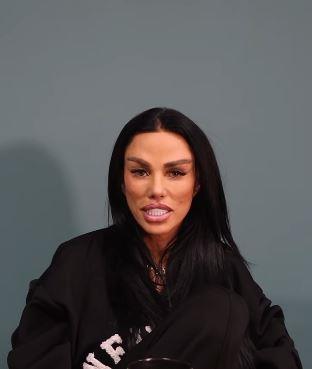Salomé Criddle explores the tension between modern beauty standards and the divine truth of our inherent worth. She challenges readers to look beyond cultural pressures and rediscover the sacred beauty of being “fearfully and wonderfully made.”

I watched a YouTube podcast recently and was shocked at how different Katie Price’s face looked. She has never been ugly, but this video showed just how many changes she has made over the years. My heart broke because, rather than enhancing her beauty, the alterations looked unsettling. It had me questioning: when is it enough? Where is the line between care, choice, and distortion?
I understand that cosmetic surgery isn’t always about vanity. It can bring restoration to burn victims, those born with disfigurements, or individuals needing corrective procedures after accidents. I’m not adverse to it, but I can’t ignore the question: what does God’s word say about all this?
READ MORE: Kylie Jenner has dissolved her fillers – is this a step toward freedom?
The psalmist declared, “I praise you because I am fearfully and wonderfully made; your works are wonderful, I know that full well” (Psalm 139:14). That’s the foundation. Before we allow culture to dictate beauty, before the mirror dictates our mood, we must begin here: we are walking wonders. Whether wrinkled, blemished, stretched, or scarred, we are still works of divine art. Our bodies will age and decay, but wonder remains.
READ MORE: ‘What does the cosmos have to do with your cosmetics?’
Cosmetic surgery is now the order of the day.
Cosmetic surgery is now the order of the day. Still, there’s that quiet voice in many of us that wonders—do we think we need it now we see wrinkles around our eyes? It’s so subtle. Botox and fillers have become almost casual in conversation today—no longer reserved for celebrities, but accessible, affordable, and, for many, normalised. What was once seen as extreme is now marketed as self-care.
That doesn’t mean we can’t acknowledge the struggle. I’ve just had a baby and my body looks nothing like it used to. There are days when I glance at myself and sigh. The sag, the stretch, the softness—it can be hard to come to terms with. Yet in the same breath I marvel at what my body has accomplished. It moved, carried, and birthed life. My skin is smooth, my complexion glows, and I can still run, stretch, and laugh. That is no small thing. “Do you not know that your bodies are temples of the Holy Spirit, who is in you…? You are not your own; you were bought at a price. Therefore honour God with your bodies” (1 Corinthians 6:19–20).
READ MORE: The beauty myth unveiled
Even if many of us never go to the extremes that Katie and other celebrities have gone, we are still pressured daily by a culture whispering: “change, enhance, fix.”
Even if many of us never go to the extremes that Katie and other celebrities have gone, we are still pressured daily by a culture whispering: “change, enhance, fix.” We scroll through filtered feeds and airbrushed adverts, and before long, we start questioning if we are enough. The truth is, in Christ we are more than enough.
So what if, instead of striving for unattainable perfection, we practised daily gratitude for the body we inhabit? What if we stood in front of the mirror not to criticise but to speak life? Take a moment to thank God for the details—hair that flows, your eyes that see, your smile that lights a room. Speak His word over yourself: “You are altogether beautiful, my love; there is no flaw in you” (Song of Solomon 4:7).
The world conditions us to believe there is always something to fix. God invites us to simply be. To rest in his workmanship, to marvel at the wonder he wove into our very frame. Try it: pause, breathe, and thank him. Love on yourself as he loves you. You’ll be surprised by the blessing that flows when this becomes your habit.




































No comments yet